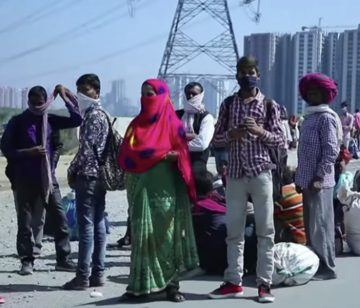Namit Arora in The Baffler:
 India is the world’s second most populous country. Yet it boasts one of the globe’s lowest levels of public expenditure on health care, just 1.3 percent of GDP, less than a fifth of what the European Union countries invest. Knowing this, the government recognized the virus as a grave, perhaps catastrophic, threat. Public health officials heroically pursued contact tracing. “Social distancing” and “self-isolation” rapidly entered the national lexicon. By March 23, with the number of confirmed cases nearing five hundred, the government had prudently shut down all domestic and international flights and hardened its borders.
India is the world’s second most populous country. Yet it boasts one of the globe’s lowest levels of public expenditure on health care, just 1.3 percent of GDP, less than a fifth of what the European Union countries invest. Knowing this, the government recognized the virus as a grave, perhaps catastrophic, threat. Public health officials heroically pursued contact tracing. “Social distancing” and “self-isolation” rapidly entered the national lexicon. By March 23, with the number of confirmed cases nearing five hundred, the government had prudently shut down all domestic and international flights and hardened its borders.
The following day, amid a growing sense of alarm, Prime Minister Narendra Modi abruptly ordered a nationwide lockdown, the largest in the world, meant to last twenty-one days. He made the declaration via a live telecast to the nation at 8 p.m., leaving people just a few hours to plan their affairs. The timing of the announcement was needlessly theatrical, as if he wanted to take the public by surprise. In this it resembled his decision in 2016 to rescind all higher denomination banknotes overnight, an order intended to defeat the shadow economy run by “black money”; the foolishly conceived plan, known as “demonetization,” never stood a chance of achieving this stated goal, thought it struck a brutal blow to India’s vast informal sector, which relies on cash transactions. Other parallels soon emerged: the same disastrous planning and execution, callous disregard for the poor, and ruthless policing. As before, Modi continued to avoid all interaction with the press, defying a rather basic expectation in a democracy.
More here.
